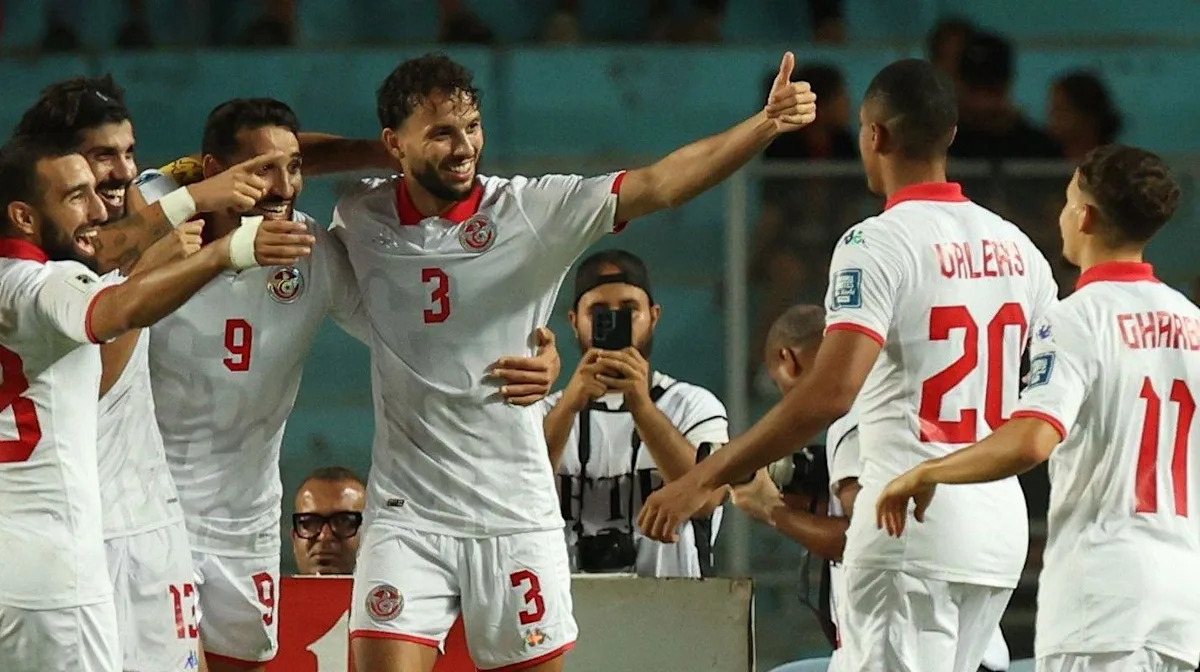As of the latest updates, Tunisia has made significant strides in securing their place at the 2026 FIFA World Cup, alongside Moroccan counterparts. Tunisia’s qualification has been a notable achievement, particularly as they accomplished this feat without conceding a single goal in their eight matches during the CAF World Cup qualifiers. This report aims to delve into the implications of Tunisia’s qualification, analyze their performance, and highlight the broader context of African football as we approach the 2026 tournament.
### Tunisia’s Journey to Qualification
Tunisia secured their place at the World Cup in dramatic fashion, clinching a 1-0 victory against Equatorial Guinea in Malabo. The match was a tense affair, with Tunisia fending off persistent pressure from the Equatoguinean side, who were in desperate need of a win to maintain their hopes of qualifying. Tunisia’s goalkeeper, Aymen Dahmen, played a critical role in preserving the clean sheet, making several vital saves that kept the Carthage Eagles in the game.
The game reached its climax in the fourth minute of stoppage time, when a quick counter-attack allowed Mohamed Ben Romdhane to find the back of the net after a well-placed pass from Firas Chaouat. This last-minute goal not only solidified Tunisia’s victory but also underscored their resilience throughout the qualifiers.
### Defensively Steadfast
Throughout their qualifying campaign, Tunisia has exhibited a strong defensive unit, which is evident from their unblemished record in terms of goals conceded. Their ability to keep a clean sheet in all eight matches is a remarkable achievement and showcases their tactical discipline, as well as the effectiveness of their defensive strategies.
Their performances under pressure, particularly in away fixtures, reveal a team that has matured into a formidable opponent on the continental stage. This defensive solidity will be crucial as they prepare to face some of the world’s best teams in the upcoming World Cup.
### Historical Context
This will be Tunisia’s seventh appearance in the World Cup, marking a significant milestone for a nation with a rich footballing history but limited success on the world stage. Historically, Tunisia has struggled to progress beyond the group stage, with their best performances coming in 1978, 1998, and 2006 when they managed to earn a draw but failed to advance.
The need to break this cycle of underachievement is vital; as African football continues to grow in stature, expectations for teams like Tunisia will only increase. Qualifying for the World Cup is just one step; it is essential that they also aim to make an impact during the tournament itself.
### Joining Morocco at the 2026 World Cup
Tunisia’s qualification comes on the heels of Morocco’s successful campaign, as they became the first African nation to secure their place in the upcoming World Cup. Morocco demonstrated their strength in the qualifiers, maintaining a perfect record that is reflective of their attacking prowess and solid defense.
The presence of two North African teams in the World Cup signifies a growing regional dominance in African football. Both squads boast talented players and tactical nous, which bodes well for their performance in the tournament. This is an exciting time for North African football, as they prepare to represent their continent on an international platform.
### Broader Implications for African Football
The successes of Tunisia and Morocco at the World Cup qualifiers come at a time when African football is experiencing a renaissance. More nations are investing in youth development and improving their domestic leagues. The emergence of talented players on the global stage has further highlighted the potential of African teams in international competitions.
As the landscape of world football evolves, the aims are clear. The performance of African teams in the World Cup is increasingly regarded as a litmus test for the development of football across the continent. Nations like Tunisia and Morocco could serve as role models for other African countries seeking to enhance their competitive edge.
### Looking Ahead
With the 2026 FIFA World Cup set to take place across North America—Canada, Mexico, and the United States—both Tunisia and Morocco will look to capitalize on their momentum. The preparations leading up to the tournament will be crucial for both teams. Building cohesion, refining tactics, and preparing mentally for the challenges ahead will be vital for success.
Key to this preparation will be the management of player fitness and strategy to ensure that they peak at the right moment. The World Cup presents unique challenges, and any setbacks in terms of player condition could impede their journeys.
### Conclusion
Tunisia’s qualification for the 2026 FIFA World Cup, along with Morocco, marks a significant milestone in African football history. As both nations prepare for the tournament, they carry the hopes of their fans and an entire continent, eager to showcase their talent and determination on a global stage.
The upcoming World Cup will not only be a test of skill and strategy but also an opportunity for Tunisia and Morocco to enhance their reputations in international football. Their performances will be closely watched, and the anticipation within Africa remains high as these two North African powerhouses gear up for a memorable campaign in 2026.
The path ahead may be fraught with challenges, but if Tunisia and Morocco can harness their collective strength, they could make history and redefine their narrative in the annals of World Cup football. The dream of progressing beyond the group stage looms large, and this time, the possibilities appear brighter.
Source link


:max_bytes(150000):strip_icc()/GettyImages-2232783287-46055de8d52d4bc185d8f75837aa2d16.jpg?w=150&resize=150,150&ssl=1)







